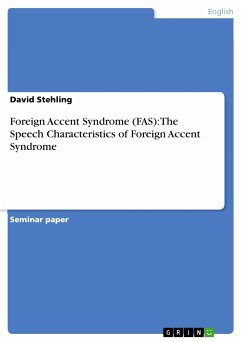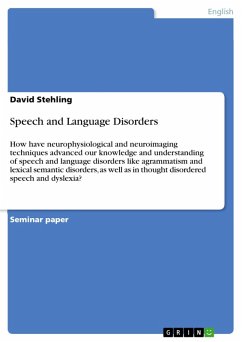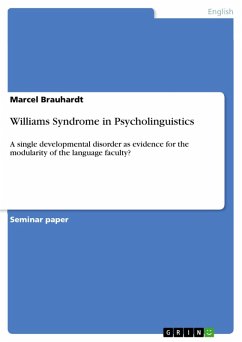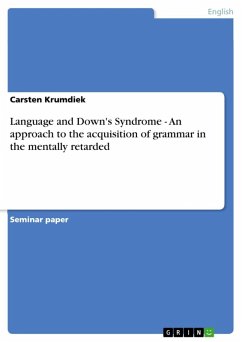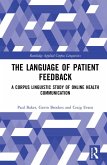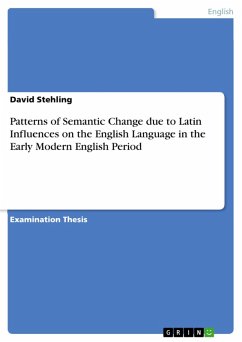Seminar paper from the year 2009 in the subject English Language and Literature Studies - Linguistics, grade: B, University of Wales, Bangor, course: Speech and Language Disorders, language: English, abstract: After a brain injury, e.g. a stroke, areas of the brain can be damaged permanently. Thus, a lesion on the brain can have long-term consequences for the concerned person, such as paralyses, decreased reflexes, altered sensory perception, memory deficits, and/or speech and comprehension impairments. The latter may include aphasia (i.e. affection of Broca's or Wernicke's area causing an inability to produce or comprehend language), apraxia (impairment of voluntary movements), or foreign accent syndrome (also known as altered-accent syndrome). The foreign accent syndrome (FAS) is a disorder that is still not completely researched, since, according to Katz et al. (2008: 537), its "symptomotology and underlying bases are poorly understood." Nevertheless, there are some cases that have been described and examined. This essay deals with the main speech characteristics of FAS and the relative extent to which segmental and prosodic features are affected in this disorder. Therefore, the syndrome will be defined and described first. In the succeeding section, the segmental and prosodic features of FAS are taken into consideration. The last part contains the classification of FAS with respect to other speech and language disorders, such as apraxia, aphasia, and dysarthria, whether it is a mere sub-type of these disorders or if it should be treated separately.
Dieser Download kann aus rechtlichen Gründen nur mit Rechnungsadresse in A, B, BG, CY, CZ, D, DK, EW, E, FIN, F, GR, HR, H, IRL, I, LT, L, LR, M, NL, PL, P, R, S, SLO, SK ausgeliefert werden.

